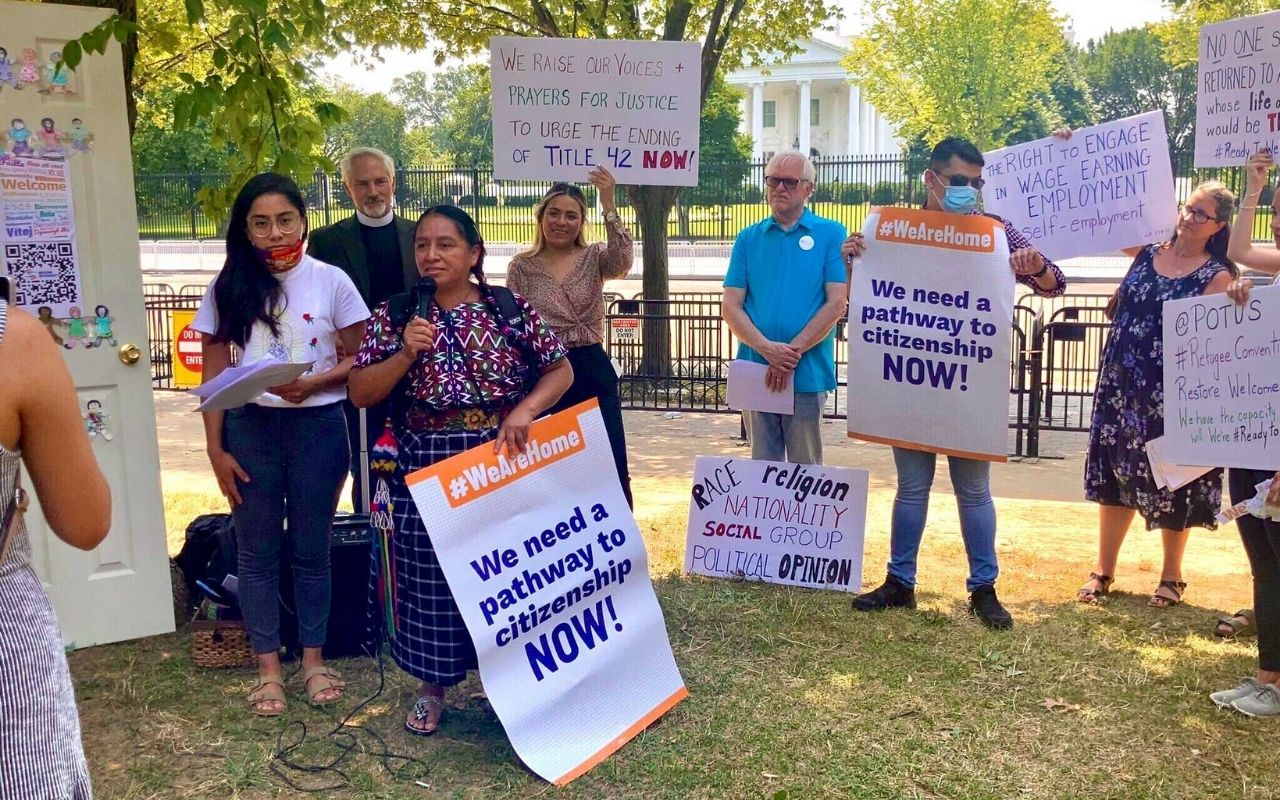As Democratic lawmakers wrangle over a $3.5 trillion recovery package, immigrant rights advocates and faith leaders are demanding the inclusion of a pathway to citizenship for the 11 million immigrants living and working in the United States.
Faith in Action, the largest faith-based grassroots organization in the country, and the LA RED Campaign, its immigration advocacy network, gathered leaders from across the country for a 12-hour vigil outside the Capitol on Tuesday July 27.
“You cannot call us essential but still [have us] be deportable,” said Viviana Arciniega and organizer with New Mexico CAFé at the vigil. “We call on Congress to act now.”
According to the Center for Law and Social Policy (CLASP), approximately 69 percent of all immigrant workers and 74 percent of all undocumented workers are employed in essential industries.
“I believe that immigration is so important to America […] undocumented people are Americans who have saved our lives. I want to get as large and robust a pathway to citizenship as possible,” Senate Majority Leader Chuck Schumer (D-NY) told organizers during his visit to the vigil.
Throughout the pandemic, over 55 million essential workers risked their health, and the health of their families, on the frontlines of our economy as grocery store clerks, domestic workers, and construction workers. Due to systemic barriers, anti-immigrant policies, and the quality of low wage jobs, many of these workers and their families do not receive workplace protections, livable wages, or benefits like paid leave and paid sick days.
Conditions are particularly tough in the agricultural sector. About 54 percent of immigrant essential workers are undocumented and working in farms and agriculture jobs, toiling in record-breaking temperatures to supply food to families across the country.
The pandemic disparities between these essential frontline workers and top corporate executives are staggering. An Institute for Policy Studies report found that the CEOs of the 100 largest low-wage employers earned an average of $14 million last year.
A preliminary outline of the recovery package, which Democrats plan on passing through the budget reconciliation process without Republican votes, sets aside $126 billion to create a pathway to citizenship for certain categories of undocumented immigrants, including those brought to the U.S. as children, temporary protected status (TPS) holders, farmworkers, and essential workers.
Putting these immigrants on a pathway to citizenship, as the Senate Budget Committee proposes, would add a cumulative $1.5 trillion to the U.S. Gross Domestic Product (GDP) over a decade and create more than 400,000 new jobs.
With the economy slowly recovering from the harshest months of a global pandemic — and a potential Covid-19 surge on the horizon — immigration activists and their advocates in Congress see the budget reconciliation process as a step towards enshrining protections for a community that has kept the U.S. economy afloat during the pandemic while receiving little to no federal aid. Because undocumented immigrants do not have Social Security Cards, millions did not receive any of the federal stimulus checks despite working on the frontlines during a global pandemic.
“The onus is on Democrats to make citizenship a reality this year by any means necessary, and to be bolder in their response to our care economy and the climate crisis so all of us can thrive,” said Greisa Martinez Rosas, Executive Director of United We Dream, the nation’s largest youth-led immigrant organization. “After nearly 35 years of inaction from Congress on citizenship, Democrats must hold strong and fight against bad faith negotiations. […] Our communities won’t accept anything less than permanent protections for millions this year.”
